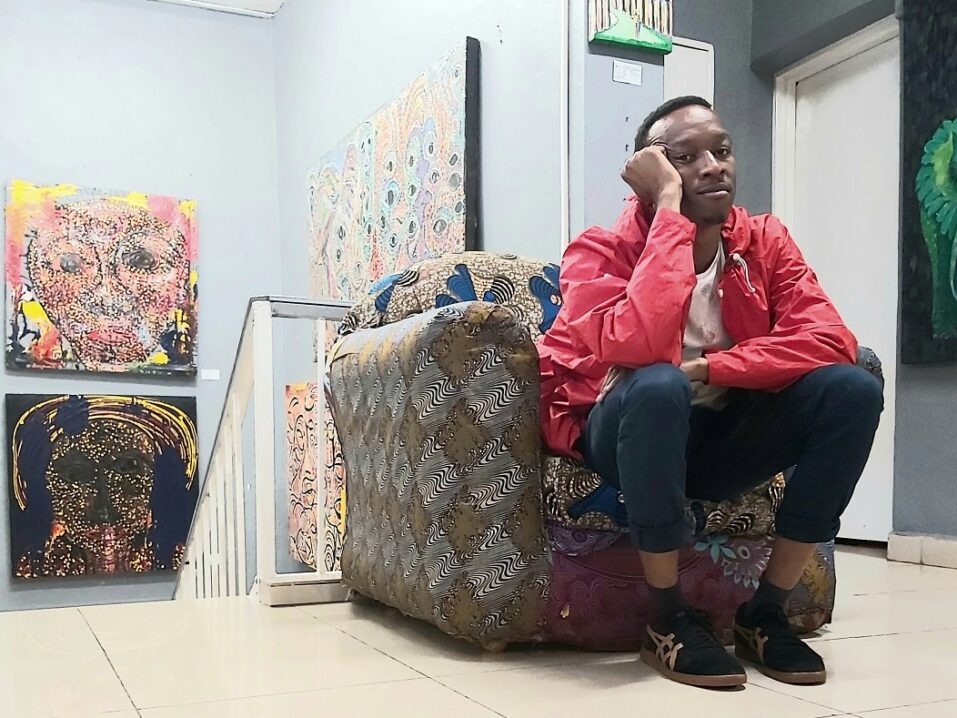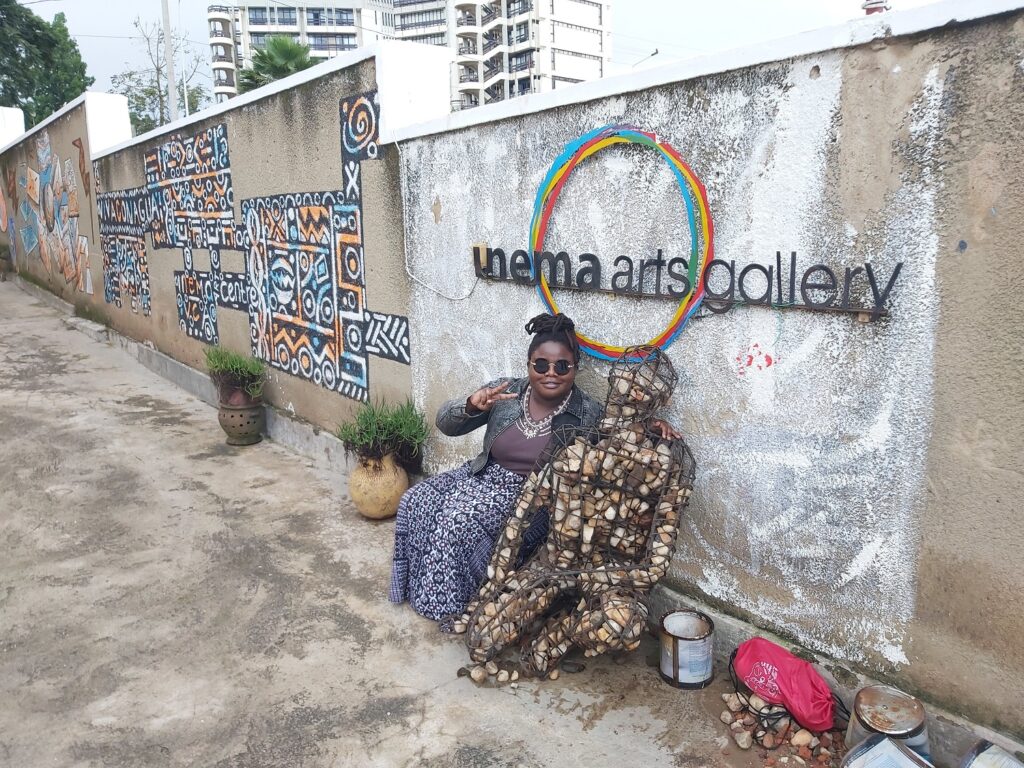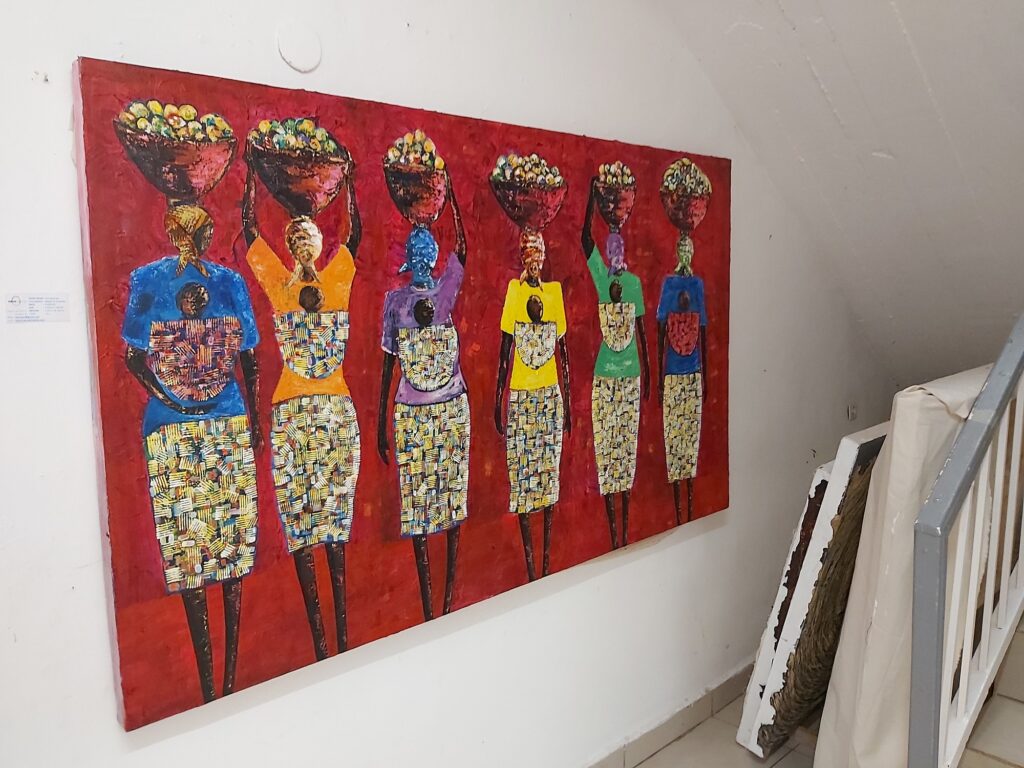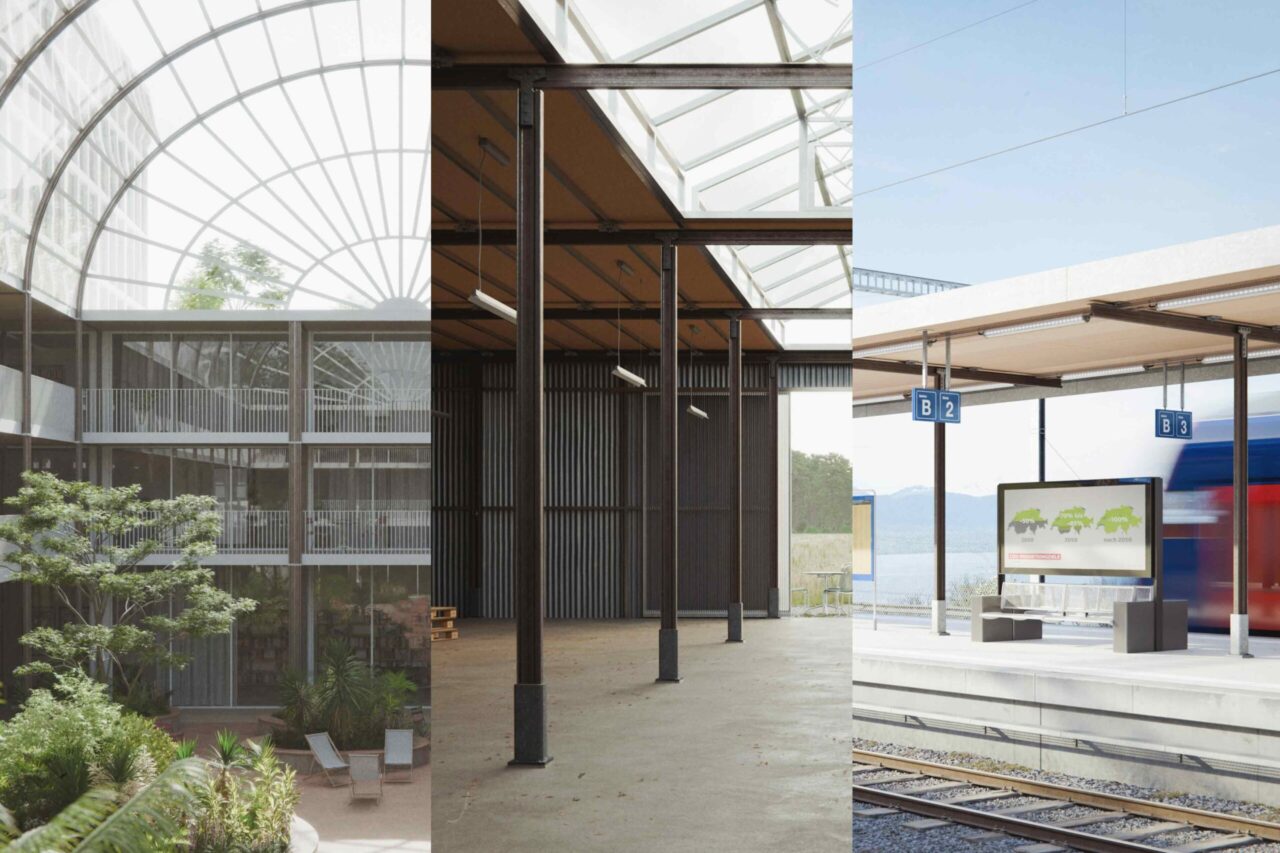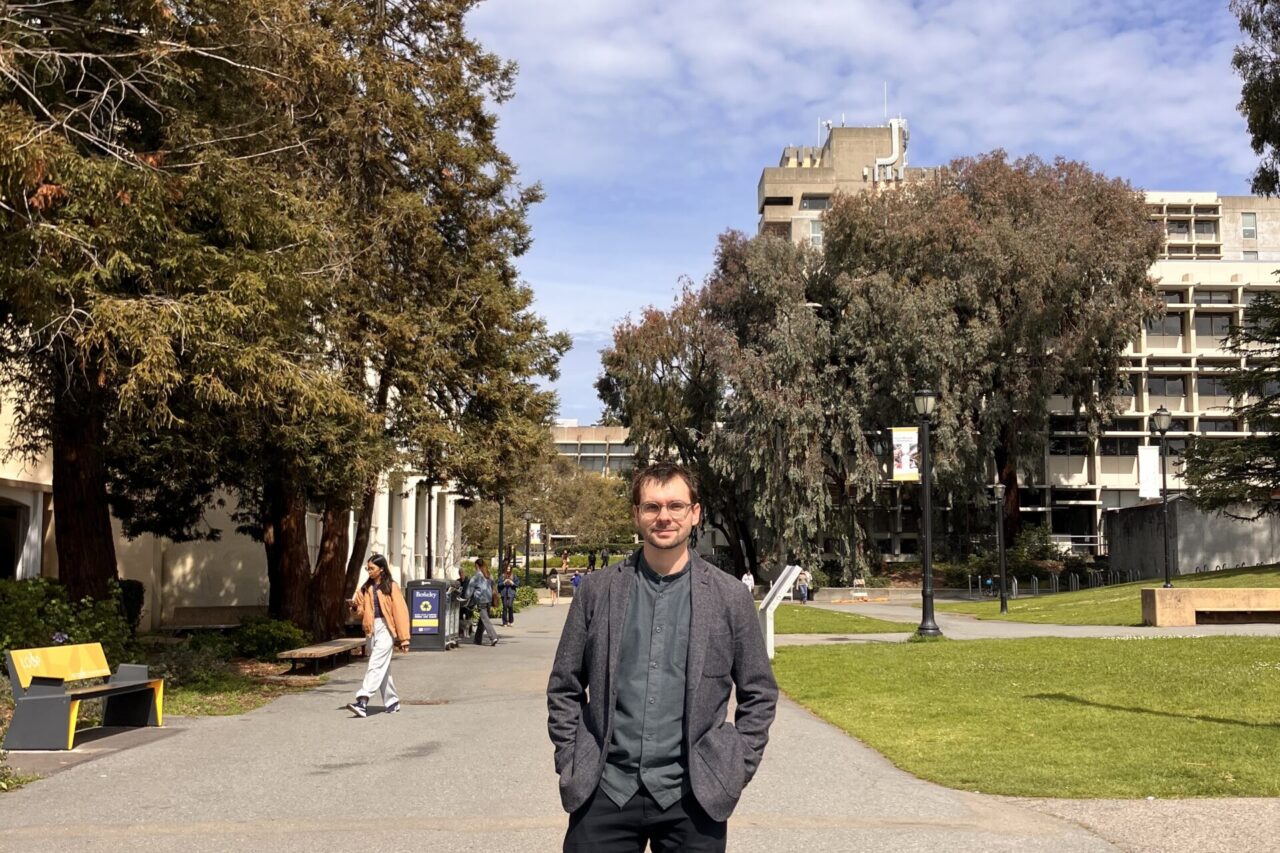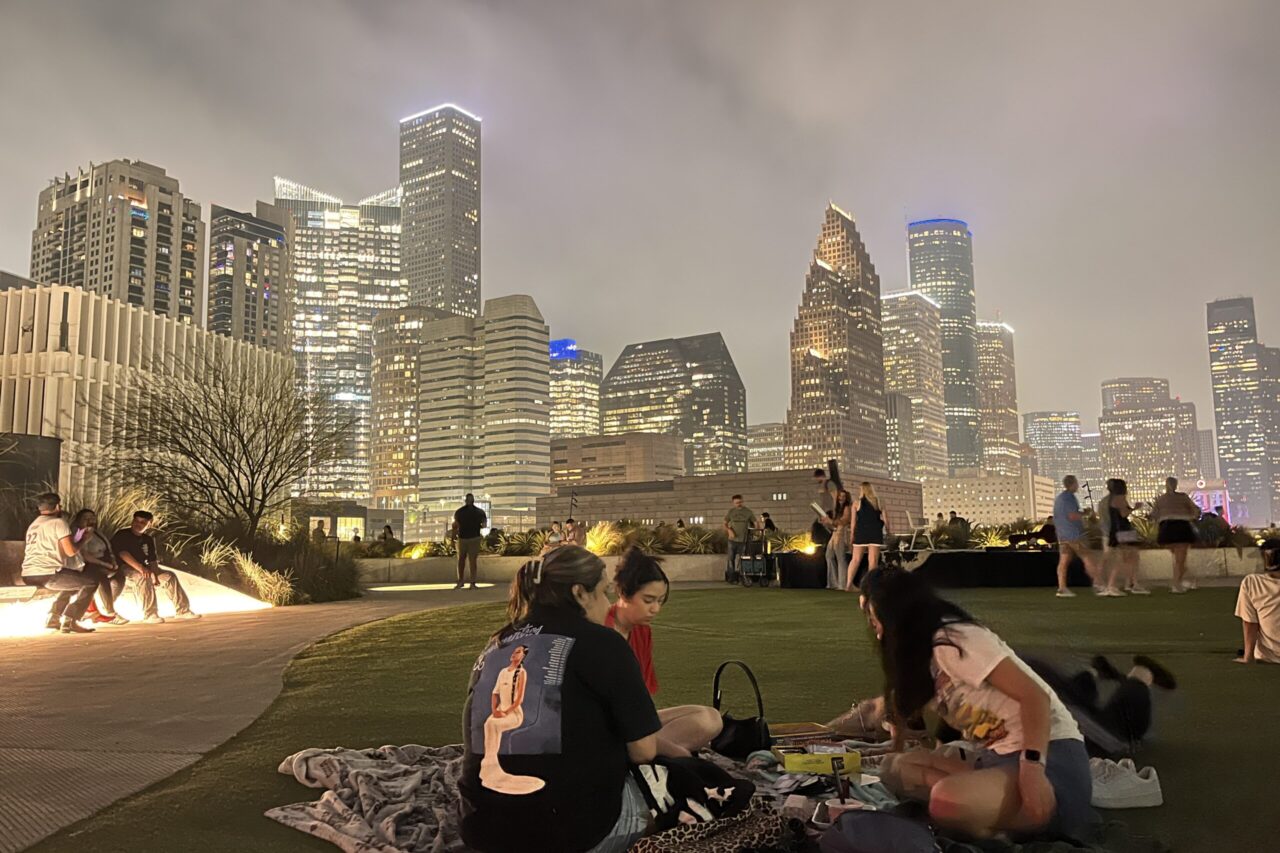They say that new cities bring with them new ideas and new experiences. I had the opportunity to venture to Rwanda’s cultural scene whilst getting some research done. Come along with me as I share my experience!
Rwanda: A tale of coffee, art and energy access
by Churchill Agutu, 16 April 2020
Preparing for an adventure
After staying a few weeks in Zurich on my arrival from South Africa, I was packed and set to begin my research fellowship in Rwanda, where I would spend six weeks learning from experts working in Rwanda’s off-grid electricity sector. My expectations were high, having heard about the clean city of Kigali and hilly landscapes, but I never realised I would discover new passions and learn so much about a nascent electricity sector. So, on 27 October 2019, I got on a plane to venture to a new country, ready to get my hands dirty.
Rwanda’s vibrant coffee and art scene
Rwanda’s streets were extremely clean, with fresh fruit markets and green grassy parks. One of the most exciting discoveries of my visit was the Kigali (capital city) coffee and art scene. I’ve always thought that specialty coffee lovers were snobs, until one warm day in Kigali, when on my weekend walk I stopped by a café called Question Coffee. I was drawn to the place not only because every trip advisor page talked about it, but also by the phrase under the sign, which read “Powered by over 30,000 Rwandan Coffee Women Farmers”. I had to see what they were doing!

The sign that caught my attention #QuestionCoffee (photo credit: Churchill Agutu/ETH Zurich)
The coffee shop was not your typical shop in a noisy city street, but was situated in a house perched high in a neighbourhood. I remember as I entered being met by a beautiful aroma of coffee, various people working on their laptops or reading books, and a huge sign besides the counter with “Let’s talk coffee” written in big letters.
Right behind me was a room where people clad in aprons were playing with what looked like a funnel and an Erlenmeyer flask (which I now know to be a pour-over coffee maker). On asking the barista, I was told that they were taking a masterclass on coffee making. I ordered a “TUK” flavoured flat white from the assortment of specialty coffee options, and sat down at one of the tables to get on with my work. Perhaps because it was something new I was tasting, but all I remember was the delightful sensation of that first sip of coffee. It was amazing! It was flavourful! And it was filling! Let’s just say that most of my weekends after that were spent at Question Coffee!
Question coffee was not the only shop selling great coffee; I also discovered artcaffe, located much closer to the city centre.

Let’s Talk Coffee (photo credit: Churchill Agutu/ETH Zurich)

My first taste of Rwandan-made specialty coffee (photo credit: Churchill Agutu/ETH Zurich)

More of my Rwanda coffee adventures at artcaffe, Kigali (photo credit: Churchill Agutu/ETH Zurich)
The other thing that fascinated me about Rwanda was the art scene. One wouldn’t fail to come across “Imigongo” paintings – symmetric artwork of varied shapes and sizes that covered the walls of restaurants, homes, hotels and guesthouses. They reminded me of Ndebele house painting designs. You could find them at affordable prices at Chimironko market, a local market selling diverse artwork, clothing and sculptures.

Sample of Imigongo art work (photo credit: Rachel Storm, Imigongo Paintings Kigali, 2017)
My favourite art gallery in Kigali was the Inema Arts Centre, which showcased paintings by local artists. The centre was a house with various rooms displaying contemporary African paintings and sculptures. I couldn’t help but take a picture of a chair covered with African wax print fabric!
Rwanda’s budding off-grid electricity sector
As well as enjoying all that Rwanda’s scene had to offer, I spent my weekdays as a visiting fellow working at the Kigali Research Collaborative Centre in Rwanda’s Carnegie Mellon University Africa, located in Kigali’s soon-to-be-constructed innovation city. Here I conducted interviews with players in Rwanda’s off-grid electricity sector, both the public and private sector. During my short tenure, I had the opportunity to attend lectures with experts from all over East Africa who were asking similar questions to me about energy access: What are the key drivers which will help Rwanda reach 100% electrification? How does policy influence electrification decisions by businesses working in the off-grid sector? Which key factors influence decision-making by off-grid electricity companies? I was learning that Rwanda’s off-grid electricity sector was in its early stages of development, and so both public and private sector were working to define their role in helping Rwanda chart the path to full electrification by 2024.

Interesting lecture by Dr Rob Fereira on Economics and Energy Access, at CMU Africa (photo credit: Churchill Agutu/ETH Zurich)
My interviews took me to rural Rwanda as well, to chat with mini-grid companies that were rethinking what it means to provide energy services. One of the most interesting was ARC Power, a company in Rwanda’s Eastern Province that built containerised energy centers to supply electricity to Rwanda’s unelectrified population. Although in the early stages of development, what made ARC stand out was that they were building modular grids that could be disassembled and reused for other applications, whereas most other companies had permanent setups, installing their central operations inside existing buildings. This particular trip was a thrilling one too: I had to overcome my fear of riding motorbikes, referred to locally as mottos, as it was the cheapest way way of getting to the village where one of the ARC grids had been implemented!
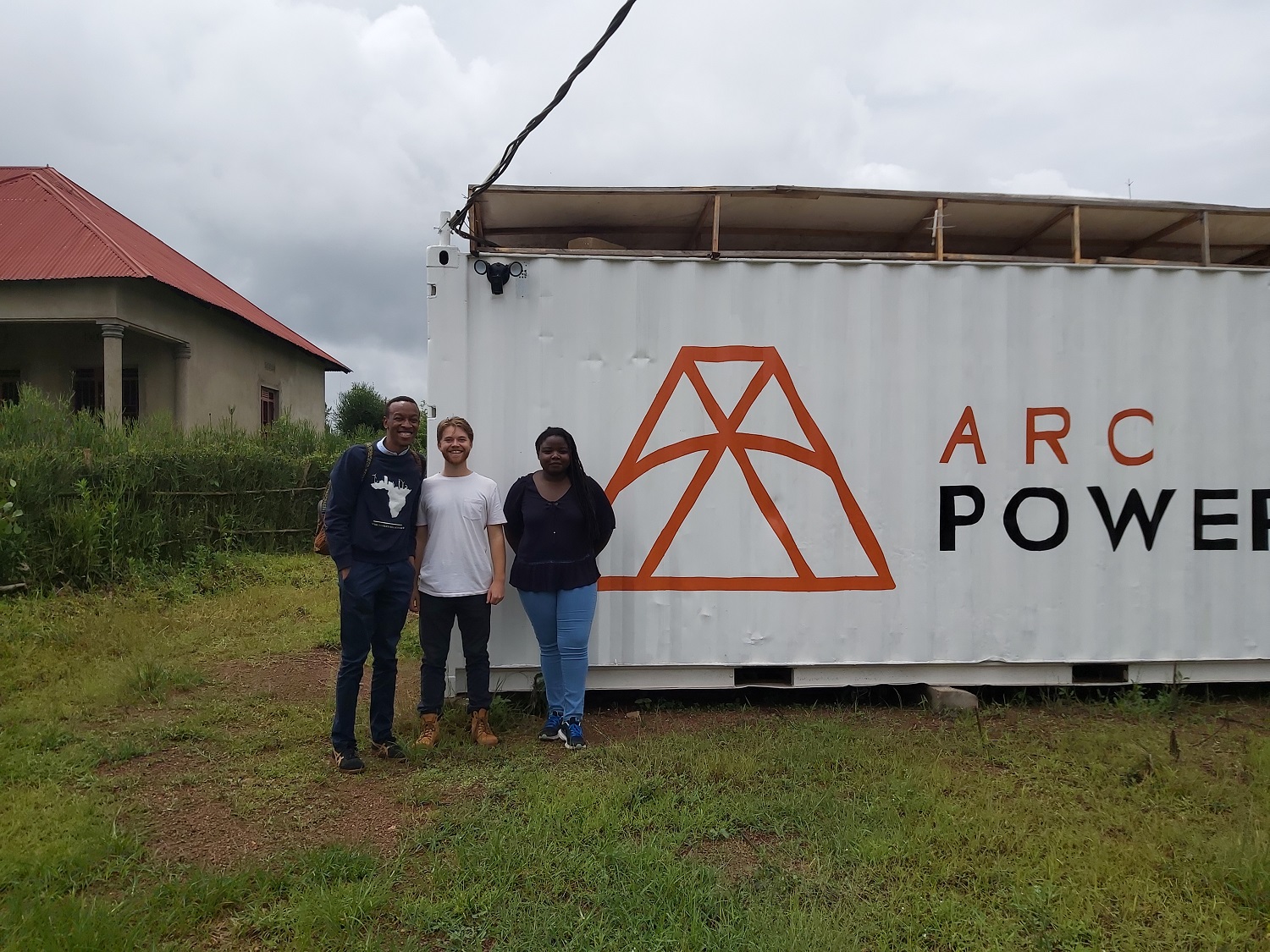
A picture we took in front of an ARC Power container in the Eastern Province (photo credit: Churchill Agutu/ETH Zurich)

About the author
Churchill is a doctoral candidate carrying out research with the Energy Politics Group, supported by ETH Zurich’s Engineering for Development (E4D) Scholar-ship. His research interests are in energy access policy in Sub-Saharan Africa with a focus on the provision of electricity-based energy services in Rwanda. He is particularly interested the provision of these energy services in the off-grid sector.


